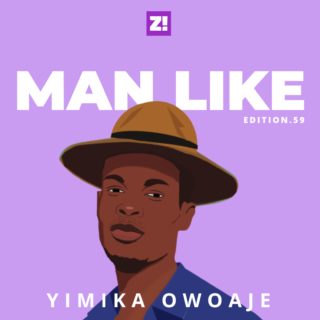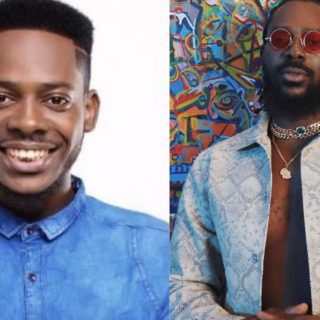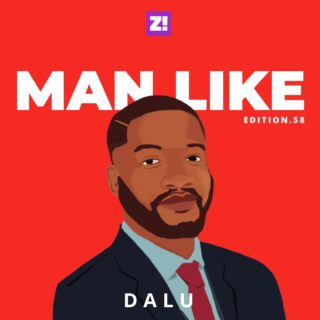For an essential service and integral part of our fundamental human rights, accessing mental health care can be quite expensive. This often discourages most people from seeking out help. People with suicidal ideation, who are in dire need of accessing mental health professionals, find themselves without the crucial help they need.
According to Nigeria’s mental health law – The Lunacy Act of 1958 – attempted suicide is a criminal offence punishable by jail time. If any of the participants in this piece had been caught by or reported to the police, they would’ve faced jail time instead of empathy, mental healthcare and dignifying community-based support.
As part of a four-part series in partnership with She Writes Woman Mental Health Initiative, we spoke to two Nigerians who dealt with suicide ideation and have had difficulty accessing mental healthcare in Nigeria. To commemorate Mental Health Awareness Month, we highlight the challenges Nigerians face in trying to access mental healthcare and the systemic barriers in Nigeria.
TW: Suicide
Laura
When I was 17, I was diagnosed with glaucoma. I only found out when my second eye was getting affected. I was in a higher institution and this devastated me. I was told that I would have to do surgery on both eyes. I thought I was going to lose my sight. This, along with issues I was facing at home drove me into a severe depression but I didn’t even know it. I was just always sad and felt like living was useless. Some of the medications I was taking gave me temporary asthma and I found that I couldn’t smell occasionally. I also suddenly became allergic to anything that had alcohol. I fainted during a field trip to a toxicology lab because of the presence of alcohol. It was the most depressing point of my life.
I started having a lot of suicidal thoughts due to my situation and it was at this point I realised that I needed help. I tried looking for mental healthcare professionals but had no idea how to go about it. I found a platform online that promised the help I needed but they were asking for N5000 – N7000 per hour of therapy. I tried talking to friends about my condition but all they told me was that I wasn’t religious enough and I had to be strong enough to face trials in life. This made me withdraw from them because I was unable to share my troubles without getting a lecture about how I should remain strong.
I was also hesitant about going to a guidance counsellor in school because I was worried that they would make me feel inadequate. I eventually resorted to self-help. I did a lot of research on mental health on the internet, reading about mental health conditions and depression. I related with other people who were depressed and found an online community that helped me navigate my way to recovery. I joined several mental health forums online that were very helpful in helping me recover. I began to see depression as a condition that happened to more people than I thought and I felt less weird about being depressed.
I have not fully recovered from depression but I know I’m on the road to recovery and I’ve reached a point where I can share my stories with others. The difficulty in accessing mental health support motivated me to start helping people with mental health conditions. I’ve been there and I know what depression and suicidal ideation feels like so I’m driven to help people who still live with depression. I want to let them know that their feelings are valid and that help is just a phone call away. No one should have to experience what I went through in search of mental health care.
Timi
It all started with my parents. Growing up, my dad was very strict. To date, I’m still scared of him and find it hard to talk to him. I was closer to my mom. She was quite harsh too, but she was my mother. My dad was very hard on her so she would transfer the aggression to us.
My dad’s favourite was my younger sister and my mom preferred my older brother, so I was their least favourite. I was mostly alone in the family. When I was in primary five, I ran away from home because my mom threatened to tell my dad about a mistake I made and I knew I was in trouble. I ran to a friend’s place, hoping her mom would help talk to my parents. She took me home and spoke to them. They pretended like all was fine. I still have the scars from the beating I received that day. I’ve been a loner since then, prone to crying every day and withdrawing from everyone.
In my second year, I was tired of everything; school wasn’t working for me, I was having issues with my boyfriend and I was broke. I wanted to kill myself but couldn’t bring myself to go through with it.
The first time I attempted suicide was during the semester break. I had opted to stay in school rather than go home for the holidays, as usual. I ended up in the hospital for a while. There were other attempts after that.
I couldn’t easily access professional help because of how expensive it was. At some point, I started talking to a psychologist online but it wasn’t consistent. I still struggle with suicidal thoughts and I hope I’m able to get the help soon.
_____
In Nigeria’s commitment to international human rights treaties and in line with the Disability Rights Act of 2018, people with mental health conditions and psychosocial disabilities should ideally have access to free and quality mental healthcare. This is sadly not the case for the majority of Nigerians.
Timi has been reached by Safe Place Nigeria, SWW’s online community where you can access daily counselling and support. You can access Safe Place Nigeria’s services for N5000 per quarter (3 months).
She Writes Woman addresses expensive access to mental health care with Safe Place Nigeria, a closed virtual community hosted on Facebook Groups that provides deeper engagement to mental health-conscious Nigerians via daily access to mental health professionals, exclusive self-care tools, content, resources, events, and wellness practices. Safe Place Nigeria is accessible for as low as N5,000 per quarter (3 months). People who genuinely need mental health support, but cannot afford it and are committed to engaging with the community, can apply for a scholarship.
People living with mental health conditions and psychosocial disabilities in Nigeria continue to be subjected to varying levels of human rights abuses across state-owned and otherwise owned facilities. She Writes Woman and Zikoko continue to document and amplify the lived experiences of these victims in a bid to hold the Nigerian government accountable to ensuring human rights-respecting mental health legislation in Nigeria.
Do you have a story of abuse in state-owned, religious or traditional facilities? Reach out to @shewriteswoman across social media or send an email to hello@shewriteswoman.org
If you’d like to get confidential support for your mental health, call the 24/7 toll-free helpline – 0800 800 2000.




